
How to Understand the 1960s in 11 Books
(Or at Least the 60s According to Mike Bond)
If you remember the 60s, the saying goes, you weren’t there. And for many of us who lived those turbulent, exciting and wildly different times it’s true. Just as philosophy seeks to justify what we already believe, so emotional history tries to remind us what we already know.
Nearly everything I’ve done and become since has evolved from those years. I graduated college in ’65, and immediately got involved in anti-war and civil rights battles, climbed mountains all over the world, and reported dangerously on wars, military coups and human rights abuses.
Books were important but not central. What was central was living. Living as deeply, as intensely, as alive as one could. It was common to party all night, weed and peyote and mushrooms and LSD, having fun and not counting the costs. We didn’t count the costs because frankly there weren’t many: we enjoyed life profoundly and it gave us back everything we gave it.
In the midst of this of course was the horror of Vietnam. I was one of the founders of the Resistance, and risked ten years in jail for it, was on the run for several years ducking the dutiful FBI guys who would clump up the stairs to whatever apartment I was crashing in, while its rightful tenant would answer the door and say I wasn’t there. I was in nearly every street battle over the war and wish I could have done more.
In the years since, I’ve had a chance to reflect on my experiences during those years, as well as the books that shaped my thinking at the time. The following books had a huge impact on my 1960s years, and are woven into the first three books of my seven-volume America series:
*
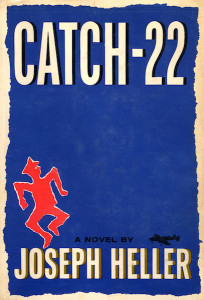
Joseph Heller, Catch 22
As a teenager in 1962 I read this book five times while traveling in the hold of a ship from New York to France. Vietnam was the most overriding issue in the 1960s; it galvanized the fury and wildness of the decade, and Catch 22formed my early opposition, and that of millions, to the War.
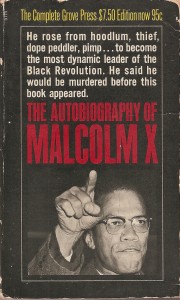
Malcolm X, The Autobiography of Malcolm X
I knew Malcolm when I lived in Harlem, I think it was 131 and Amsterdam. I remember him speaking in the basement of a worn, mildewy Harlem church; he was less fiery than gentle, leading his listeners inexorably from point to point, from reason to resolution: if something is wrong, we can learn what it is and fix it. He knew that books could change the world. Needless to say I loved the guy.
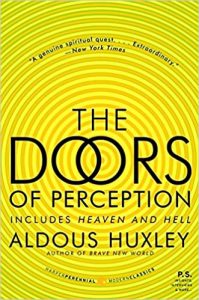
Aldous Huxley, The Doors of Perception
Though written in 1954, Aldous Huxley’s extraordinary introduction to psychotropic drugs had a huge impact on me and millions of others during the 1960s. “The urge to transcend self-conscious selfhood is… a principal appetite of the soul.” – these words exemplify the 1960s and what we tried to achieve.
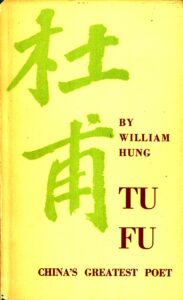
Few people have heard of this great Chinese poet who lived nearly 2,800 years ago. I remember being close to death in the Himalayas in 1966, on a sordid bug-infested bed in the middle of nowhere, worried more about Vietnam than about dying, and reading his lines, “I worry about war, knowing I have / No way to set the world aright.”
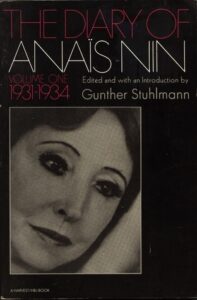
Anais Nin, The Diary of Anais Nin
How deeply she defined the privacy of the soul, feminine eroticism, and freedom. To have read her while you are young in Paris, and to live a bit the same way, is a weapon even now against death.
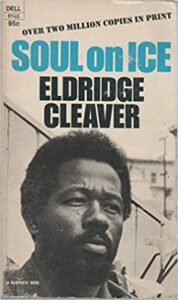
Eldridge Cleaver, Soul On Ice
If this book doesn’t blow your mind then nothing will. I met Eldridge Cleaver after he got out of Folsom Prison in late 1966. At nineteen he’d been sentenced to two years in Soledad for marijuana possession, then got sent to San Quentin and Folsom, and finally got out thanks to the magnificent lawyer Beverly Axelrod and Ramparts I’d done some prison time by then, but totally agreed with Eldridge that we had to listen to Malcolm X and find a way for Blacks and Whites to live together – which we should do with love and respect.
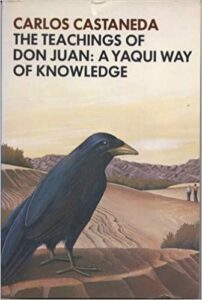
Carlos Castaneda, The Teachings of Don Juan: A Yaqui Way of Knowledge
Many of us were deeply involved in seeking deeper meaning through psychotropic drugs. Don Juan’s philosophy enriched my life, and gave rise to a profound search for spiritual values tied to a more primitive lifestyle and constant search for truth, and to following “the path with heart” – the epigraph to my first volume of America.
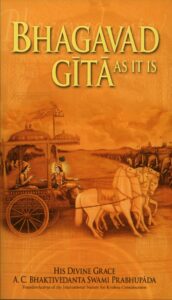
I lived for while on the Kali Gandaki River in Nepal, where I made a deal with the local guru, a remarkable man who taught me Sanskrit in return for my teaching him English (he was then in his eighties but planned to go to the US “some day”). The Gita focuses on how to live in the world while spiritually learning from it, and denying nothing in one’s search for illumination.
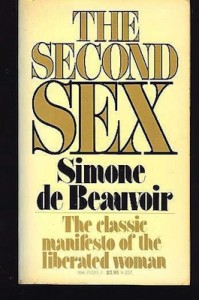
Simone de Beauvoir,The Second Sex
I was fortunate to work for Gisèle Halimi in Paris in 1967, the first woman candidate for the French Senate. She was a brilliant lawyer and human rights activist, and a lot of her exciting campaign was influenced by this book by Simone de Beauvoir. It was very central, according to Betty Friedan, to her own extraordinary The Feminine Mystique, which in the US challenged the traditional views of women’s roles and led, among many other things, to the Equal Pay Act of 1963 and the formation of the National Organization for Women.
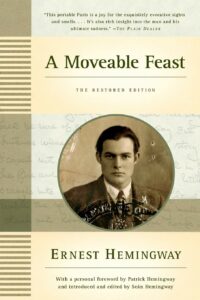
Ernest Hemingway, A Moveable Feast
Ernest Hemingway’s memoir of Paris in the 1920s, a delightful exploration of the delicious charms of the City of Light, where I have lived on and off for many years. No other writer can distill such emotion into so few words as Hemingway, or has written such a fine tribute to this special place – with the possible exception of Henry Miller’s Quiet Days in Clichy, published in 1956 but much read in the 1960s.
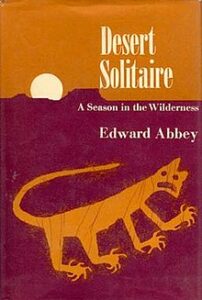
Edward Abbey, Desert Solitaire
I wrote a book for the Sierra Club in 1967-68, and much appreciated the wisdom of Abbey’s enduring masterpiece. Set in the deserts of the Southwest, it entices the reader to wander this magnificent wilderness—now much reduced—and to learn from nature instead of ruining it. Like Thoreau’s Walden, another significant book in the 1960s, this book ruminates on the true place of humans in the world, and led me like many other young people to seek wisdom in nature.
__________________________________
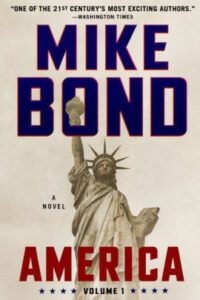
America by Mike Bond is available now from Big City Press.
Mike Bond
Mike Bond is an American novelist, ecologist, war and human rights journalist, and poet. He has covered guerrilla wars, death squads, and military dictatorships in Latin America and Africa, Islamic terrorism in the Middle East, and ivory poaching and other environmental battles in East Africa and Asia. America is the first of Mike Bond's seven-volume historical novel series.



















